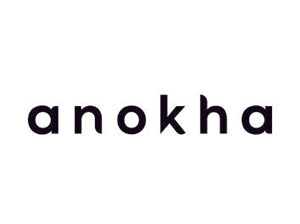
glass skin

the bottom line
It’s a Korean beauty ideal: glass skin. But what is glass skin, why do we all want it, and how do we achieve it? While some may consider glass skin to simply be a passing K-beauty trend, it’s fundamentally all about taking good care of yourself from the inside out, which in turn promotes outer radiance. Keep reading for the dewiest skin ever.
first layer: what is glass skin?
Glass skin is skin that is so clear, dewy, and flawless with a smooth and translucent texture that it resembles glass. The term initially appeared on social media around 2017, but it has in fact represented an ideal of Korean beauty for years by focusing on a multi-step regimen that layers hydrating elements to create a dewy look.
second layer: how to get glass skin?
Glass skin isn’t just about the products we use to achieve it. Rather, it reflects a holistic approach to skin health that includes maintaining a healthy lifestyle by eating healthy fats, fruits, and vegetables; hydrating; exercising regularly; and getting enough sleep. Layering is a key component in the process of achieving glass skin. Ideally, this involves using multiple layers of hydrating products to achieve a dewier look. Let’s break it down.
third layer: the glass skin routine
There are a few essential steps in the glass skin routine, and some are an added luxury if you have time:
- double cleansing: consider this a non-negotiable element in the pursuit of glass skin. cleansing is always a critical component of healthy skin. double cleanse with an oil-based cleanser followed by a creamy or gently foaming cleanser, especially at night to remove makeup and dirt.
- exfoliation: another essential element, exfoliation helps to lift dead skin cells from the skin’s surface. Exfoliation can be done with either a mechanical scrub or a light chemical peel. Take care not to over-exfoliate – regular exfoliation done in moderation is key.
- toner: toning is a critical step in balancing the skin’s pH following cleansing. A hydrating toner without drying alcohols or witch hazel is recommended. If you have time, try the “7 Skin Method”, the K-beauty technique of layering on toner or essence (see below) up to seven times after cleansing.
- sheet masks: these are optional if you’re short on time. But, if your skin is particularly dry, layer on a sheet mask 2-3 times per week to add extra hydration. When you’re done with the mask, allow the excess product to absorb into your skin rather than wiping it off.
- essence: an essence is a thin, water-based product which is lighter than a serum. Used to boost skin’s hydration even further, essences contain active ingredients geared towards brightening, hydrating, and nourishing the skin, although they’re less concentrated than serums. These are typically patted into the skin with your hands.
- serum: a serum is another essential component of the glass skin regimen. Serums add even more hydration with the benefit of functional ingredients such as panthenol, antioxidants*, and hyaluronic acid. Serums are more viscous than essences and can either be used on the entire face or for spot treatment to address specific concerns. If your skin is particularly dry, the use of both an essence as well as a serum is ideal.
- moisturizer: another critical step, moisturizers seal in the hydration as well as active ingredients already applied. Additional ingredients typically included in moisturizers include ceramides*, panthenol, and Centella asiatica (cica) to hydrate, soothe, and repair the skin. The weight of the moisturizer depends on your skin type and personal preference – oily skin will prefer a lighter moisturizer, while drier skin will respond best to a heavier moisturizer.
- eye cream: the addition of an eye cream becomes more important as we age. Because the skin around the eyelids is so thin, it readily shows early signs of aging including fine lines, wrinkles, and dark circles. Most eye creams therefore contain humectants* and antioxidants* to combat these issues. Use a small amount of product on the orbital rim around the eye and tap into skin.
- face oil: an oil provides an occlusive layer to seal in all of the hydration that’s just been applied, and simultaneously protects the skin barrier. Oils that are both non-comedogenic* and nourishing, such as sea buckthorn and rosehip, are of most benefit.
- sunscreen: finally, sunscreen. sunscreen is essential to reduce photoaging as well as the risk of skin cancer. If your routine is done at night, this step isn’t necessary, but the final step of any morning routine must include sunscreen with an SPF of 30 or higher.
fourth layer: how we do it
Here’s our current glass skin routine at anokha:
- double cleansing: begin with our rice bran & pomegranate facial oil and follow with our oatmeal cleansing milk or rice & hinoki facial cleanser. Both are gentle, non-foaming cleansers which lift oil and dirt without stripping the skin of its natural oils.
- exfoliation: dropping in spring 2024, our bamboo & yuzu facial scrub. Formulated with organic rice flour, bamboo extract, and yuzu oil, this scrub gently lifts dead skin cells and polishes skin.
- toner: both our lotus flower & rosewater toner and our white tea & lychee toner are hydrating toners with humectants sodium PCA and propanediol to draw moisture into the skin.
- serum: our jasmine serum combines hyaluronic acid, panthenol, and jasmine extract to provide deep hydration to the skin.
- moisturizer: our sake & sandalwood facial lotion and our lotus & lychee facial crème both contain key actives, including Centella asiatica and allantoin, to help heal the skin while protecting the skin barrier.
Be patient with your routine – glass skin doesn’t happen overnight. However, a consistent routine daily or twice daily should provide results within 2-3 weeks.
Go forward and glow.
All this and more at www.anokhaskincare.com .
xx
anokha
references:
- spate.com
- https://www.allure.com/story/how-to-get-glass-skin-korean-beauty
- https://www.instyle.com/how-to-get-glass-skin
definitions:
antioxidant: an antioxidant is a compound that inhibits oxidation. free radicals create oxidative stress and an inflammatory response which in turn can damage DNA and result in injury to the epidermal and dermal layers of the skin. in the skin, this manifests as premature aging with decreased elasticity leading to increased wrinkling, age spots, and decreased skin tone. antioxidants stabilize free radicals, which in turn limits their ability to damage the body.
ceramides: ceramides are lipids found in skin cells which comprise approximately 50% of the epidermis. they are essential for forming the skin's natural barrier to seal in moisture and preventing the entry of harmful elements. lower ceramide levels have been linked to skin diseases including acne, psoriasis, eczema, and rosacea.
humectant: a humectant is a substance that attracts water from the dermis and environment.
non-comedogenic: an ingredient which does not promote the formation of comedones. closed comedones are termed "whiteheads", while open comedones are called "blackheads".
skin barrier: the skin barrier protects against external agents including mechanical and chemical insults, heat, pathogens, water, and radiation.
faq’s:
what is glass skin?
glass skin is skin that is so clear, dewy, and flawless with a smooth and translucent texture that resembles glass.
how do I get glass skin?
glass skin reflects a holistic approach to skin health that includes maintaining a healthy lifestyle by eating healthy fats, fruits, and vegetables; hydrating; exercising regularly; and getting enough sleep.
what is the glass skin routine?
the glass skin routine includes the following key steps: 1) double cleansing, 2) exfoliation, 3) toner, 4) serum, 5) moisturizer, 6) face oil, and 7) sunscreen.
what is a glass skin facial?
a glass skin facial follows the full glass skin routine and includes multiple layers of intense hydration.
how long does it take to get Korean glass skin?
you’ll generally see results with dewier and more translucent skin after a minimum of 2-3 weeks of a glass skin routine.
what are the side effects of Korean glass skin?
beware of over-exfoliation of the skin. regular, gentle exfoliation will provide more benefits than harsh scrubs which can damage the skin.



leave us a comment
This site is protected by hCaptcha and the hCaptcha Privacy Policy and Terms of Service apply.